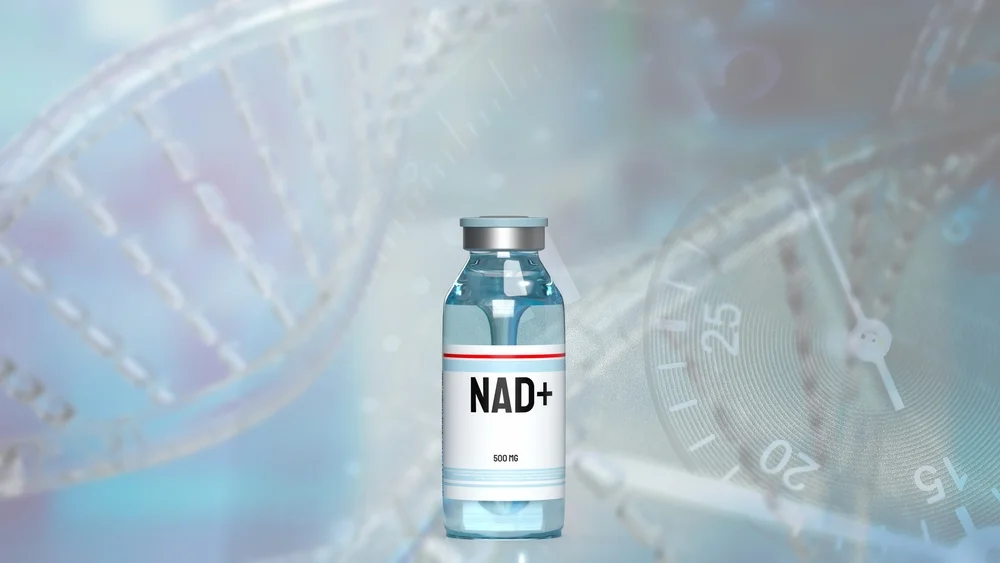Unlocking the Power of NAD+: How Cellular Repair Supports Healthy Aging
The science of aging has made remarkable strides in recent years, shedding light on the biological mechanisms that influence how we grow older. At the forefront of this research is NAD+ (nicotinamide adenine dinucleotide), a vital coenzyme found in every cell of the body. NAD+ plays a critical role in cellular repair, energy production, and metabolic regulation, making it an essential component of healthy aging. However, as NAD+ levels naturally decline with age, the body becomes more vulnerable to cellular damage and dysfunction. Understanding how NAD+ works and how to support its levels is key to maintaining vitality and promoting long-term health.
What is NAD+ and Why is it Important?
NAD+ is an essential molecule that facilitates some of the body’s most critical processes. It acts as a coenzyme for enzymes that are responsible for converting nutrients into energy, repairing damaged DNA, and regulating cellular stress responses. Essentially, NAD+ is the fuel that keeps cellular machinery running smoothly.
One of its most significant roles is in energy metabolism. NAD+ is involved in the conversion of glucose and fatty acids into ATP, the energy currency of the cell. Without adequate NAD+, energy production declines, leaving cells less capable of performing their functions. Beyond energy production, NAD+ is indispensable for DNA repair. Each day, our cells are exposed to factors like UV radiation, environmental toxins, and oxidative stress that cause DNA damage. Enzymes like PARPs (poly ADP-ribose polymerases), which repair DNA breaks, depend on NAD+ to carry out their work. A decline in NAD+ levels hampers this repair process, leading to mutations and cellular dysfunction.
How NAD+ Levels Decline with Age
As we age, NAD+ levels in the body decrease significantly. This decline is driven by a combination of biological and environmental factors, including reduced production, increased consumption by enzymes involved in stress responses, and lifestyle factors such as poor diet and chronic stress. By the time individuals reach middle age, their NAD+ levels can be nearly half of what they were in youth.
This reduction in NAD+ availability has profound consequences for cellular health. Low NAD+ levels impair mitochondrial function, the process by which cells generate energy. Mitochondrial dysfunction is a hallmark of aging and contributes to fatigue, reduced metabolic efficiency, and increased oxidative stress. Furthermore, the decline in NAD+ compromises the activity of sirtuins, a family of proteins that regulate inflammation, metabolism, and stress resistance. Without adequate NAD+, these “longevity proteins” cannot function effectively, accelerating the aging process.
The Link Between NAD+ and Healthy Aging
Healthy aging is not just about living longer but also maintaining quality of life and functionality as we age. NAD+ is a cornerstone of this effort, as it supports the body’s natural ability to repair damage and adapt to stress.
Research has shown that maintaining NAD+ levels can improve mitochondrial function, reduce inflammation, and enhance cellular resilience. These effects translate into tangible benefits, including increased energy, better cognitive function, and reduced risk of age-related diseases such as diabetes, neurodegenerative disorders, and cardiovascular conditions. By supporting NAD+ levels, it may be possible to mitigate many of the challenges associated with aging.
Ways to Support and Boost NAD+ Levels
The good news is that there are several ways to support NAD+ levels and promote cellular repair. These strategies combine lifestyle changes, dietary interventions, and emerging medical therapies.
Dietary Interventions
A balanced diet rich in NAD+ precursors can help maintain and restore NAD+ levels. Precursors such as niacin (vitamin B3), nicotinamide riboside (NR), and nicotinamide mononucleotide (NMN) are converted into NAD+ in the body. Foods like turkey, chicken, fish, peanuts, and green vegetables are excellent sources of these compounds. Additionally, a diet high in antioxidants can help reduce oxidative stress, which depletes NAD+.
Regular Exercise
Physical activity is one of the most effective ways to enhance NAD+ levels. Exercise stimulates the production of NAD+ and improves mitochondrial efficiency. High-intensity interval training (HIIT) and strength training are particularly beneficial, as they place greater demand on energy production, prompting the body to adapt by boosting NAD+ levels.
Sleep and Circadian Rhythm
Sleep quality and circadian rhythms have a significant impact on NAD+ metabolism. Ensuring a consistent sleep schedule and getting 7–9 hours of quality sleep per night can optimize the body’s natural NAD+ production. Limiting exposure to blue light from screens in the evening and practicing good sleep hygiene are additional steps to support circadian health.
Stress Management
Chronic stress depletes NAD+ by increasing cortisol levels and oxidative stress. Incorporating mindfulness practices, such as meditation, yoga, or deep-breathing exercises, can help mitigate these effects. Reducing stress not only conserves NAD+ but also supports overall well-being.
Advanced Therapies for Boosting NAD+
In addition to lifestyle changes, emerging medical therapies offer promising ways to enhance NAD+ levels. Supplements containing NAD+ precursors, such as NR and NMN, are increasingly popular for their potential to restore cellular energy and combat the effects of aging. These supplements are supported by growing research and are considered safe for most individuals.
Another option is NAD+ IV therapy, which delivers NAD+ directly into the bloodstream for rapid absorption. This therapy is often used for individuals seeking a more immediate boost in energy, cognitive function, and recovery from cellular damage. It is particularly beneficial for those experiencing chronic fatigue, metabolic disorders, or the aftereffects of stress.
NAD+ and the Future of Healthy Aging
The potential of NAD+ to revolutionize healthy aging is becoming increasingly clear. As more research highlights its role in cellular repair and overall vitality, NAD+ has emerged as a cornerstone of strategies aimed at promoting longevity. By addressing the root causes of aging—such as mitochondrial dysfunction, DNA damage, and inflammation—NAD+ provides a powerful tool for improving health outcomes and quality of life.
Maintaining optimal NAD+ levels is not just a matter of extending lifespan but of enhancing the years we live. With the right combination of lifestyle habits, dietary support, and advanced therapies, individuals can harness the power of NAD+ to feel energized, resilient, and youthful at any age.
If you’re ready to unlock the benefits of NAD+ and take control of your aging journey, Synchronicity Health is here to help. Our team offers advanced therapies and personalized care designed to optimize your NAD+ levels and support your long-term health. Contact us today to schedule a consultation and learn how NAD+ can enhance your vitality and well-being. Don’t wait—embrace the future of healthy aging with Synchronicity Health.



